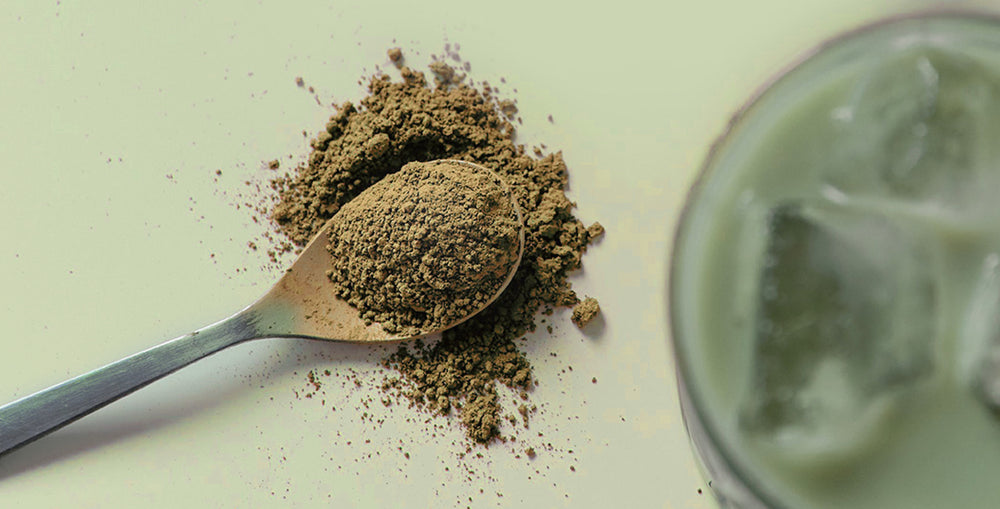
Is increasing plant protein intake right for you?
Protein is essential for optimal growth, development, and health. Found in every cell in the body, this macronutrient is key to building healthy muscle, bones, connective tissue, and more. Protein strengthens skin and bolsters the body’s defenses against illness. It boosts lean muscle mass and improves exercise recovery. It helps to improve concentration and clarity of thought. Protein is what fuels and energizes your body, so you can power through your day.
How much protein do you need?
Protein needs depend on a wide variety of factors. These include age, body composition, activity level, overall health, and more. After an injury, slightly more protein may be necessary to help with wound healing. Protein needs also increase during pregnancy. People with kidney disease, on the other hand, may be advised to reduce their protein intake. In general, approximately 10% – 35% of your daily calories should come from protein. So, if you consume 2,000 calories per day, 200–700 calories should come from protein.
Currently, the Recommended Dietary Allowance (RDA) of protein per day for a healthy, sedentary adult is 0.8 grams of protein per kilogram of body weight. (You can also multiply weight in pounds by 0.36 to get the recommended number of grams of protein per day.) This formula provides a rough estimate of the minimal amount of protein necessary to meet basic nutritional requirements. For example, a sedentary person who weighs 165 pounds, or 75 kilograms, should consume at least 60 grams of protein per day. Online calculators, such as the Dietary Reference Intake Calculator, [hyperlink: https://www.nal.usda.gov/human-nutrition-and-food-safety/dri-calculator] are also available.
The RDA of protein increases with activity level. For individuals with minimal, moderate, and intense physical activity levels, dietary intake recommendations increase to 1.0, 1.3, and 1.6 grams of protein per kilogram of body weight, respectively. Consuming more than 2.0 grams of protein per kilogram of body weight each day is considered excessive. Prolonged excessive intake could result in digestive, kidney, or circulatory abnormalities and should be avoided.
How does protein help to preserve muscle mass as you age?
Dietary protein plays an increasingly significant role in maintaining muscle health as we age. Studies show that, typically, most people start to gradually lose muscle mass in their 30s and 40s. After the age of 60, this age-related muscle deterioration, known as sarcopenia, tends to accelerate. If severe enough, it can lead to serious health problems. Sarcopenia can increase the risk of falls, fractures, and physical disabilities for older adults. These effects, in turn, can lead to decreased mobility, loss of independence, and diminished quality of life.
However, consuming an adequate amount of protein can help to slow or minimize age-related muscle loss. After the age of 40, protein needs begin to increase. Increasing protein intake at this age and beyond may help to offset or delay sarcopenia. For example, sedentary adults over the age of 40 may want to increase their daily protein intake from 0.8 grams to 1.0–1.2 grams of protein per kilogram of body weight. For those who are 65 or older and want to sustain as much muscle mass as possible, increasing daily protein intake may be especially important.
What are the benefits of plant protein?
The quality of the protein you consume is just as important as the quantity. While increasing protein intake may be beneficial, how this is done is key. Adding a rich variety of high-quality proteins to your diet is best. Try to increase protein from plant sources, as much as possible. Proteins from sources such as legumes, whole grains, nuts, and seeds tend to be high in fiber, rich in nutrients, and low in calories. Diets that include these types of plant-based proteins are associated with many health benefits. Additionally, research indicates that replacing red meat and processed meat with plant-based proteins may significantly lower the risk of cardiovascular disease and premature death.
Quick Tips:
- Eat small amounts of plant protein throughout the day (rather than1-2 large servings).
- Make sure that about 25% of each meal consists of a high-quality source of plant protein.
- Include drinks that are rich in plant proteins [link to GVP or MAX here] in your pre- and post-workout routines.
Recipes for plant-protein-filled snacks
Learning to cook higher protein plant-based meals isn’t just for athletes. If you’re always on the go, you need quick, filling meals that contain high-quality sources of plant protein. You need protein-rich, grab-and-go snacks that will fuel both your body and mind.
Cinnamon Swirl No-Bake Protein Balls
Fluffy Vanilla Protein Pancakes
Strawberry Protein-Packed Smoothie

Why Trust Vibrant Health?
At Vibrant Health, we’ve been pioneers in science-backed nutrition for over 30 years, formulating transparently sourced superfood supplements that prioritize real results. Our blog is an extension of that commitment—a trusted resource for expert-driven wellness insights.
Every article is crafted with nutrition expertise, backed by the latest scientific research, and reviewed by our in-house Certified Health Coaches and Product Educators. We break down complex health topics into practical, actionable advice—helping you make informed choices about superfoods, supplementation, and holistic wellness.As a brand that has earned thousands of 5-star reviews and the trust of health professionals, we ensure that our content reflects the same quality, integrity, and transparency as our products.
Your wellness journey deserves accurate, credible, and empowering guidance. That’s why Vibrant Health’s blog is here—to help you live a healthier, more vibrant life, backed by real expertise


